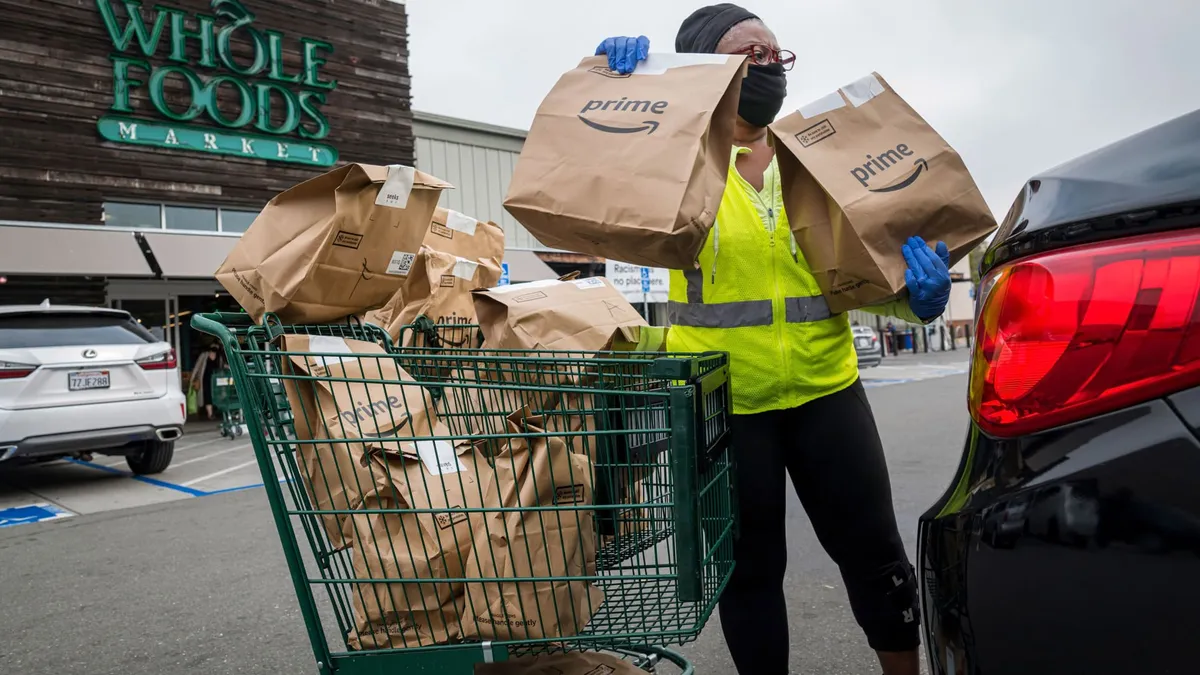
In a significant move to enhance customer experience, Amazon is expanding its same-day delivery service for fresh foods to over 1,000 cities and towns across the United States. This strategic initiative is designed to encourage shoppers to include essentials like meat and eggs in their online purchases while browsing through Amazon's extensive product catalog. The company made this announcement on Wednesday, highlighting its commitment to improving grocery shopping convenience.
As part of its expansion efforts, Amazon's same-day delivery service will soon be available in cities such as Raleigh, North Carolina, Tampa, Florida, and Milwaukee, Wisconsin. The company plans to extend this service to at least 2,300 locations by the end of the year. This rollout follows successful trials of the service that began in Phoenix last year and further tests in additional cities this year.
Amazon's testing phase revealed that customers frequently added items like strawberries, bananas, avocados, and other perishables to their orders. Interestingly, many of these shoppers were first-time customers of Amazon’s grocery service. The company reported that these new customers returned to shop twice as often when utilizing the same-day delivery feature compared to those who did not purchase fresh food.
The same-day delivery service is free for Prime members on orders exceeding $25 in most cities. For customers whose orders do not meet this minimum, a fee of $2.99 will apply. Shoppers without a Prime membership will incur a flat fee of $12.99, irrespective of their order size. This pricing strategy is intended to incentivize more customers to sign up for Amazon Prime, thereby enhancing their overall shopping experience.
The announcement has had a noticeable impact on Amazon's competitors. Shares of Instacart fell by more than 11% following the news, while supermarket chains like Kroger and Albertsons saw declines of approximately 4% and 3% respectively. Even Walmart, which has been striving to keep pace with Amazon's rapid delivery options, experienced a slight dip of 1% in its stock price.
Over the past few years, Amazon has been actively reworking its grocery business. The company has implemented several changes to its chain of Fresh grocery stores to attract more shoppers. Additionally, Amazon has opened fresh food delivery services to non-Prime members, broadening its customer base. The company is also focusing on promoting its growing sales of household staples, including paper towels, cleaning supplies, bottled drinks, and canned food.
In January, Amazon appointed Jason Buechel, the former CEO of Whole Foods Market, to lead its worldwide grocery stores business. This appointment follows Amazon's acquisition of Whole Foods in 2017 for $13.7 billion. Buechel announced in June that the company would integrate Whole Foods more closely with Amazon's grocery operations as part of a strategic reorganization. Until now, Whole Foods had operated largely independently from Amazon's grocery offerings.
With these developments, Amazon is poised to redefine the landscape of online grocery shopping, making it easier and more convenient for customers to access fresh food deliveries right at their doorstep.